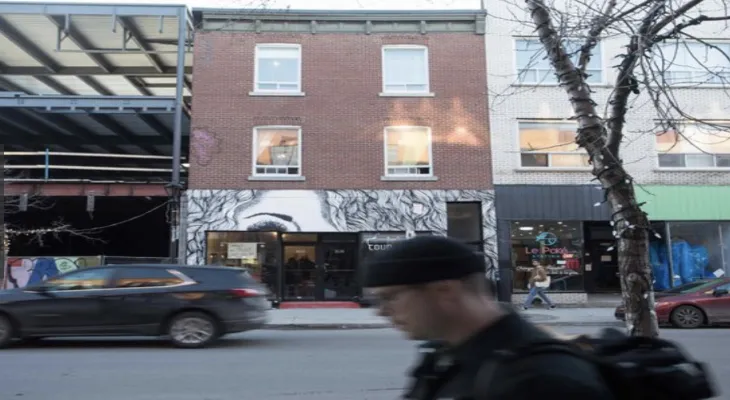Search here
Newspaper
Search here

Arab Canada News
News

Published: April 9, 2023
Agencies: Like many other tenants in Quebec, Jean-François Raymond says he will have to leave the apartment he has lived in for 22 years as he is being evicted from this place, which will soon be designated for a short-term rental center.
On December 30, this Quebecer (58 years old) felt he was “falling into a pit” when he received a letter informing him that his apartment would be converted into a center “for short-term tourist accommodation.”
His upstairs neighbor Joseph Picard faces the same situation and will have to leave the apartment he has lived in for 54 years. Picard (68 years old) said he does not yet know where he will live after June 30, pointing out that the apartment owners “want to make more money.”
One of the indicators of the housing crisis is the more than doubling of tenant evictions from their homes in the cities of Montreal and Quebec between 2021 and 2022, according to a report by tenant protection organizations.
This “worrying” phenomenon is currently spreading to the rest of the province, where evictions outside these two cities increased by 508%.
Martin Blanchard, spokesperson for the “Quebec Housing and Tenants Committees Coalition,” said that “the majority of evictions are fraudulent and simply serve speculation purposes.”
Recently, Quebec’s Minister of Housing, France-Élaine Duranceau, promised to take action against those aiming to create sites like Airbnb.
The debate over short-term rentals has been renewed in recent weeks following the death of seven people in a fire at a late 19th-century building that housed Airbnb apartments in a restricted area of Old Montreal.
Martin Blanchard wrote that with the housing shortage, evictions serve as a means to apply “crazy rent increases” by signing leases with new tenants.
In the French-speaking province, the majority of leases are for only one year, allowing for regular increases.
However, rents in the province are still lower than in Vancouver or Toronto but recorded a 7% increase in Montreal in 2022 compared to the previous year, according to data from the rental website “Rentals” published in March.
Marc-André Plant, spokesperson for the “Quebec Landlords Group” (CORPIQ), said that “landlords are also in a difficult position like tenants,” pointing to increased municipal taxes, interest rates, and renovation costs.
He added that “in buildings where tenants have lived for twenty or 25 years, prices are still much lower compared to the market to the extent that the owner’s expenses exceed rental income.”
The result is that “the rental supply is declining and landlords are forced to evict tenants to renovate” the place, according to the French-speaking region.
With some exceptions, the law allows a landlord to evict a tenant to convert the place into a short-term rental, expand it, or subdivide it, if they want to recover it to live in themselves or for a relative.
Once the owner obtains the necessary permits, “the tenant has no means of defense and no option but to leave,” says Kimian Brown, a housing lawyer.
She added that people in vulnerable situations with low incomes are the main victims and few of them know they have 30 days to file an appeal.
Having lost his three-bedroom apartment, for which he pays CAD 910 per month (618 euros), much less than market prices, Jean-François Raymond may be forced to leave Montreal Island, where housing has become rare and very expensive.
It is worth mentioning that the housing crisis in general, and rentals specifically, emerged alongside the crazy price hike during the Corona period.
The important question today is whether these tenant evictions, for whatever reason, will mark the beginning of a crisis and require immediate action by the responsible authorities to prevent an increase in the number of homeless people who have no shelter?!.
Comments